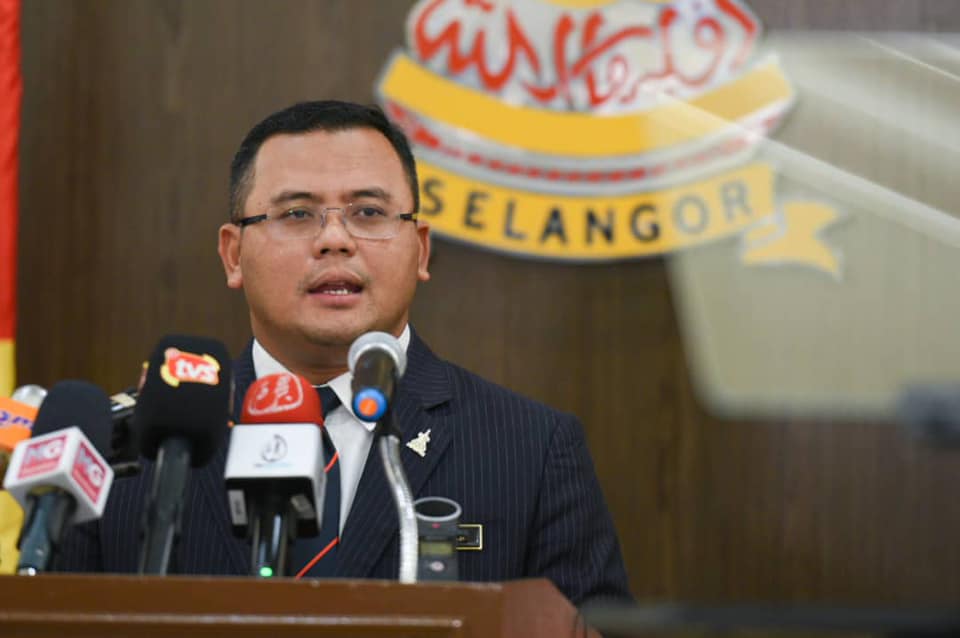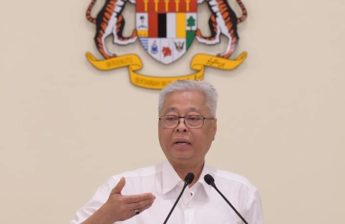KUALA LUMPUR, Nov 25 – The Selangor state government today announced the introduction of lifetime digital health records and electronic medical records under the Selangkah mobile app that are operable at 59 hospitals and clinics throughout the state.
Selangor Menteri Besar Amirudin Shari, when tabling the state government’s 2023 budget at the state legislative assembly, said the state government will be allocating RM1 million to improve existing health record features under the Selangor Saring state health screening programme – which can be accessed via the Selangkah app – to create a more “holistic and comprehensive” platform known as Rekod Hayat Selangor (Selangor Life Record).
“The development of Rekod Hayat Selangor will be carried out in two phases to ensure that the Electronic Medical Record (EMR) and Lifetime Health Record (LHR) features are perfectly fitted and incorporated [into the new platform], at the same time, allowing people in Selangor access to their personal health information and prescriptions that health care staff can refer to when needed, at any time and at all health care facilities (in your pocket, when it’s needed, where it’s needed).
“Additionally, as a measure to standardise public health programmes under one digitisation platform starting in 2023, public health programmes that have not yet gone through the digitisation process such as SLIM Selangor and SUKA (Selangor Community Health Volunteers) will be integrated under the Selangkah application,” Amirudin said.
Amirudin said the state government is proud to be “the first state” to develop Selangkah as a comprehensive digital platform to implement health initiatives and programmes.
The head of the Pakatan Harapan (PH) state administration said the Selangkah application combines public health science, artificial intelligence (AI) technology, machine learning, and analytical tools that can systematically manage data, target at-risk groups, facilitate access, and improve user and health staff experience.
“The Selangkah application has the capacity to play a role in helping the state government formulate public health policies and make evidence-based decisions.
“Since its establishment, various health initiatives have been digitised such as Covid-19 screenings, the Selvax programme, home isolation monitoring and most recently, Selangor Saring which concluded on September 11, 2022,” Amirudin said.
Amirudin said the Selangor Saring pilot project – which will be continued into next year – received nearly 88,160 applications for various screening tests, with 49,650 laboratory test results processed and sent via the Selangkah app to Selangor residents who took part in the health screening programme.
The same health screening records can also be accessed by health staff at 59 hospitals and clinics throughout Selangor for referral purposes, making Selangor the first state to pioneer integrated electronic health records in the country, Amirudin said.
Selangor Saring screens for three non-communicable diseases (NCDs): namely heart disease, kidney disease, diabetes, and hypertension; cancer, including breast, cervical, colorectal, and prostate; as well as eye conditions like myopia (nearsightedness), glaucoma, and retinal disease.
Since the introduction of Selangor Saring in May this year throughout all 56 state constituencies, the health screening programme has received 54,640 registrations and applications for screenings covering multiple tests, with a 66 per cent attendance rate.
A total of 45,780 screening coupons have been claimed, covering physical exams, blood tests, urine tests, as well as tests for cervical cancer, breast cancer, colorectal cancer, prostate cancer, and eye screenings.
“The Selangor Saring programme has recorded among the highest yield rate in detecting disease, compared to similar programmes, where we successfully detected 49 per cent of cases that required follow-up action, consultation, and further treatment,” Amirudin said.
“I believe that the Selangor Saring programme has achieved an impressive performance in large-scale health screening programmes of this type in Malaysia. Looking at the outcome of this programme, the state government will continue its implementation with the allocation of RM1.5 million for the Selangor Saring programme and RM1 million for Selangor Kanser.”








